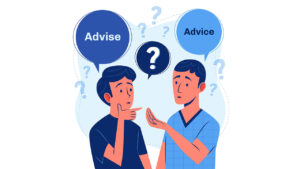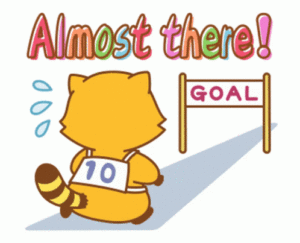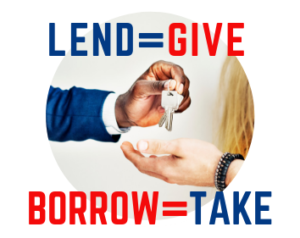You want to speak English well, but you make mistakes. It can make you feel embarrassed and shy about speaking.
After listening to many students speak English, here are some mistakes I hear a lot. Do you make these mistakes?
If you do make these mistakes, let’s try to correct them!
Mistake #1 - "I did a mistake."
 Even if I understand what you mean, the correct way to say this is, “I made a mistake.”
Even if I understand what you mean, the correct way to say this is, “I made a mistake.”
Here are a few phrases to remember that go together:
- make a mistake
- take a break
- do homework
- go on a date
- watch a movie
Mistake #2 - "Can you advice me?"
 Advice is a noun, but the verb form is advise. Therefore, this question is correct when you say, “Can you advise me?” You can also say, “Can you give me some advice?”
Advice is a noun, but the verb form is advise. Therefore, this question is correct when you say, “Can you advise me?” You can also say, “Can you give me some advice?”
Mistake #3 - "I didn't studied for the test."
When you use the negative form, the helping verb takes the past tense and the main verb keeps the base form. Therefore, the correct sentence is, “I didn’t study for the test.”
These examples are all past tense:
- I played football with my friends yesterday. (positive)
- I didn’t play football with my friends yesterday. (negative)
- We watched the Spiderman movie last week. (positive)
- We didn’t watch the Spiderman movie because it was sold out. (negative)
Mistake #4 - "Less people came to class today."
Native English speakers even make this mistake. The problem is that less goes with non-countable nouns and fewer goes with countable nouns. Since people are countable, the correct sentence is, “Fewer people came to class today.”
 These sentences are correct. Can you tell me if the noun is countable or non-countable?
These sentences are correct. Can you tell me if the noun is countable or non-countable?
- There was less homework last week.
- Students who write fewer essays need more practice.
- What can you do when you have fewer ideas for writing?
- They have less information about the event than their friends do.
Mistake #5 - "The student is a 22-years-old man."
This mistake is really common. When there is an adjective that uses a number, don’t add “s” to the words before the noun. The correct sentence is, “The student is a 22-year-old man.”
Here are more examples when you should NOT use “s” (and don’t forget the hyphen):
- a 2-hour test
- a 60-minute test
- a 3-time champion
- a 4-month-old baby
However, if you move the noun, these sentences are correct with “s” in the plural form (and you don’t need hypens for writing):
- The test takes 2 hours.
- The test is 60 minutes long.
- He won the championship 3 times.
- The baby is 4 months old.
Mistake #6 - "We went to a funny event."
Maybe the event was funny, but most students actually mean that the event was fun. The correct way to say the meaning they intend is, “We went to a fun event.”
So, what is the difference between fun and funny?

If something is fun, it is enjoyable, pleasant, and you like it.
If something is funny, it is amusing and makes you smile or laugh. Funny can also mean that something is strange or surprising.
Mistake #7 - "I recommend you a vocabulary book."
Don’t recommend a person. The correct sentence structure is “subject + verb + object” and when you use the verb “recommend,” it should be a thing (not a person**).
Here are some correct example sentences with “recommend”:
- I recommend this vocabulary book for you.
- Do you recommend this restaurant?
- Can you recommend a good university?
- People recommend this car for the good gas mileage.
** It is sometimes correct to recommend a person, but please understand the meaning. For example:
- We recommend John. (This might mean he is a good person for the job position.)
- My parents recommend Sarah. (This might mean the parents recommend Sarah as a good wife for you. 💕)
- He recommends I get a new dentist. (In this case, “I get a new dentist” is a noun clause used as the object of the verb. This noun clause should begin with “that,” but “that” is often dropped in conversation. The recommendation is not really for a person in this sentence.)
Mistake #8 - "Almost people were late today."
It is confusing to understand the difference between almost and most. The correct sentence is, “Most people were late today.” Here is the difference between most and almost:
Most is the superlative form of many. Here are other examples:
- many/much –> more –> most
- fast –> faster –> fastest
- slow –> slower –> slowest
- good –> better –> best
Almost means something very close, but not quite all. For example, 
- I almost scored a 7.0 on IELTS. (but I didn’t. I only scored 6.5. This is close, but not a 7.0.)
- The team almost won the match. (but they didn’t win.)
- Almost all the students passed the class. (but not all. The number was close, but not enough.)
Mistake #9 - "Can you borrow me your keys?"
Borrow means to take or receive something from someone. You plan to return it.
You should say, “Can I borrow your keys?” 
Lend means to give something to someone. You plan to get it back from that person.
You should say, “Can you lend me your keys?”
Mistake #10 - "Thanks God!"
If you want to give thanks to God or anyone else, you should say it like this:
“Thank God!” (no “s”)
or
“I give thanks to God!”
**BONUS** - "I don't like losing." "Me, too."
No one likes losing, but if the sentence is negative, you need to say, “Me, neither.”
“Me, too.” is positive.
“Me, neither.” is negative.
You can be a better English speaker!
 Everyone makes mistakes, but the person who learns from their mistakes wins. If you learn from your mistakes, your English speaking will improve!
Everyone makes mistakes, but the person who learns from their mistakes wins. If you learn from your mistakes, your English speaking will improve!
What mistakes do you hear when you listen to people speak English? Share it in the comments so we all can learn and improve!

Thanks for this helpful lesson!
You’re welcome! Stay consistent with your English practice!